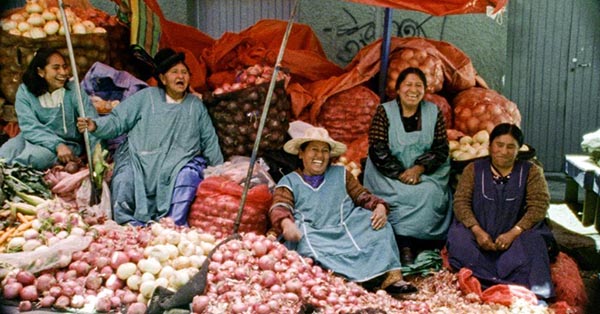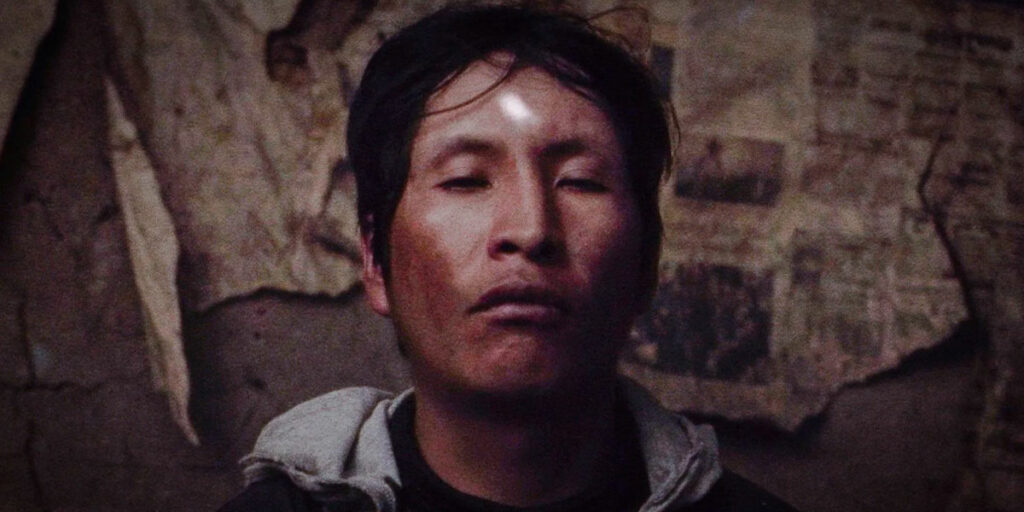Kiro Russo captures a tormented, changing La Paz in his latest film, El Gran Movimiento, with Antonioni-esque style and mesmerising results.
Director Kiro Russo (Dark Skull) has himself referenced the influence of Robert Bresson on his films; the late French filmmaker’s distanced approach to form, storytelling and characters translates clearly into El Gran Movimiento (The Great Movement). Also harkening back to Michaelangelo Antonioni’s La Notte (1961) by portraying La Paz in mesmerising fashion as a busy city drenched in isolation, Russo’s filmic education and inspiration combines with experimental modernism, both narratively and stylistically. The result is an intoxicating, challenging body of work which will reward and frustrate in differing measures.
The setting of El Gran Movimiento is the capital of Bolivia in the present day. A miner named Elder (Julio César Ticona) and his colleagues arrive in La Paz, joining worker protests before searching for any job they can find. Before we even meet these characters, Russo patiently captures the capital and its citizens with well-observed shots from afar, gentle zooms and inventive angles. It bears similarities to the opening of La Notte, where a modernising Milan is intricately captured before any main characters even enter the screen; in El Gran Movimiento, La Paz is introduced immediately, signifying its importance concurrent to the people within it. As Elder and his companions desperately seek work, an undefined sickness overtakes him, with Ticona giving an impressively physical performance of world- and life-weariness.
As Elder’s health declines, Mamá Pancha (Francisa Arce de Aro) enlists the help of witch doctor Max (Max Bautista Uchasara) to help him, which infuses the film with a magical, hallucinogenic haze amidst the realism. El Gran Movimiento’s plot is almost secondary to its symbolism, style and themes; Russo’s tendency to fashion the abnormal out of an everyday setting is frequently refreshing, but can on occasion cause the solid thematic commentaries to become muddied and lost. Nevertheless, this mixture of real life and dreams is challenging and appetising. A lack of characterisation means an emotional angle to El Gran Movimiento remains relatively non-existent, although perhaps this is Russo’s aim: to amplify this sense of isolation in a capital city; to highlight the powerlessness that so many working class people suffer from in Bolivia. Even if El Gran Movimiento is not always cohesive, its bravery and freshness ensures it is always a mesmerising watch.

As a snapshot of society and general life in La Paz, El Gran Movimiento is a towering achievement. Scenes of Elder and his companions on a cable car looking down on the sprawling city are notable in how they capture the different classes within it, from the marketplaces and ramshackle buildings right up into the hills and affluent houses and neighbourhoods atop them, the men commenting with admiration on these unattainable places of residence. There is a disregard shown to Elder and countless people like him onscreen, and a general loneliness in the way La Paz is captured. And yet there is also an undeniable feel of community amongst the hardship, most notably in Max’s – a character based on a real-life friend of Russo – light-hearted, comical interactions with women at the market.
With an amplified sound design and suggestive cinematography – all of which is grounded in realism – El Gran Movimiento proves to be a sensory experience as much as anything. Its hypnotic concoction of older filmmaking styles and techniques merged with an experimental nature and modern-day societal themes enhance it into a memorable experience, even amidst its occasionally frustrating ambiguity.
El Gran Movimiento will open on Friday, August 12 at Film at Lincoln Center in New York City, followed by Los Angeles, before moving onto other cinemas nationwide.

